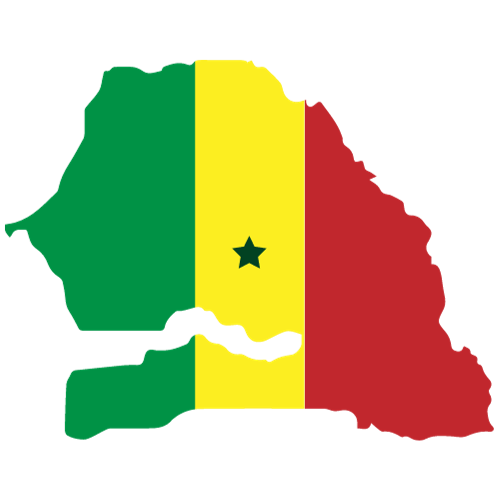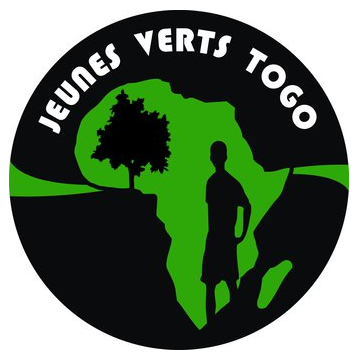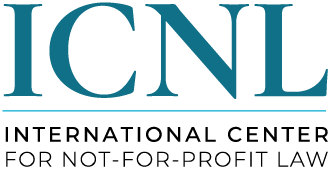Senegal
WEST AFRICA CIVIC SPACE INDEX
Senegal, acknowledged as one of West Africa's enduring democracies with a history of peaceful power transitions since gaining independence in 1960, confronts persistent challenges in its civic space, as illuminated by responses from interviews and surveys.
Scrutiny of the indicators delineates Senegal's civic space as "challenged," marked by impediments to freedoms alongside potential avenues for increased engagement. Noteworthy concerns encompass curtailments on press freedom, legal hurdles impeding activists, elevated corruption levels, disparities in political inclusion, threats directed at civil society groups, discrimination against women and minorities, uneven access to information, gender equality gaps, constraints on digital rights, and fluctuations in human rights protections.
Despite these challenges, Senegal emanates resilience from a robust civil society and youth movements steadfastly advocating for rights. Capitalizing on these strengths while addressing civic freedom limitations holds promise for advancing openness. Senegal's overall profile portrays a nuanced narrative—sustaining a democratic system coexists with persisting gaps in transparency, human rights protections, restrictions on dissent, and the inclusion of marginalized groups. Deliberate reforms, concentrating on inclusivity and accountability, could serve as conduits for translating democratic principles into tangible practices.
Indicator Assessments
Freedom of Assembly:
While generally upheld, protests occasionally encounter restrictions, coupled with instances of excessive force against demonstrators.
Freedom of Expression:
Journalists face harassment, especially when covering sensitive topics, and defamation laws impose constraints on investigative reporting. Online expression, however, maintains a relatively open landscape.
Freedom of Association:
CSO registration grapples with bureaucratic impediments, and while the CSO space is generally open, instances of harassment against human rights groups have surfaced.
Rule of Law:
A judiciary maintaining independence contends with lingering government corruption. Despite this, due process rights are predominantly observed, with variations in access to justice among different groups.
Political Participation:
Elections are marked by competitiveness, yet allegations of an uneven playing field persist. Women and youth inclusion in politics present opportunities for enhancement.
Civil Society Participation:
Active involvement in policy discussions characterizes CSOs, albeit with a moderate influence on decisions. Public consultations, as perceived by civil society, exist but are deemed limited.
Human Rights Protections:
A legal framework exists, but discriminatory practices persist against women, minorities, and LGBTQ groups due to inconsistent enforcement.
Anti-Corruption and Transparency:
Corruption remains a challenge despite existing anti-graft institutions. Government transparency and access to information are fair but could benefit from improvement.
Safety of Activists:
Activists generally operate freely, yet sporadic threats and arbitrary arrests create a climate fostering self-censorship.
Access to Information:
Legislation exists, but implementation varies, necessitating a broader availability of government data for enhanced transparency.
Gender Equality:
Strides in women's rights coexist with gaps in political participation, economic opportunities, and safeguards against gender-based violence.
Digital Rights:
While internet access has expanded, sporadic restrictions during protests and limited data privacy protections pose challenges.
Challenges and Opportunities
Senegal grapples with a spectrum of challenges in its civic space, encompassing corruption, freedom restrictions, political exclusion, and disparate rights protections. Within these challenges, windows of reform beckon.
Foremost is the menace of corruption, a corrosive force undermining governance and public trust. Strengthening the enforcement of anti-graft laws and fortifying protections for journalists and activists emerges as a pivotal avenue for improving transparency.
Legal harassment and arbitrary arrests cast a shadow, fostering a climate conducive to self-censorship. Neutralizing intimidation directed at civic actors becomes pivotal for empowerment.
Inequities in political inclusion, particularly barriers faced by women and youth, demand remedial action. A commitment to inclusive processes and strategic reforms aimed at broadening participation emerges as a pressing need.
Despite these challenges, Senegal boasts a vibrant civil society and youth movements operating with relative freedom. Shielding these entities from threats could further embolden them to steer transformative reforms.
Senegal's history of democratic transitions stands as a foundation to build upon. Targeted reforms, centring on inclusivity, transparency, and rights protections, possess the potential to translate these principles into tangible democratic practices.
Senegal's civic space, assessed across the 12 indicators, aligns with the classification of "Challenged." Despite the existence of a democratic system, discernible gaps persist in freedoms, transparency, and inclusivity.




